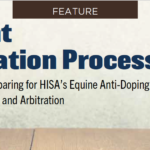Laser Skin Care: A Burning Issue
Michael J. Sacopulos, JD
At the young age of 24, New York resident Christie Desir was at the top of her career traveling all over the world performing as an Opera singer. Then her life took a turn for the worse when she was in a near fatal car accident. During the accident the airbag exploded, scaring one side of her face. Almost two years later, on April 6, 2006 she had an appointment based on a recommendation from a friend to get the scar removed from a “dermatologist” in Manhattan. Desir was diagnosed with PTSD in 2005 due to the accident, and was finally excited to get a cosmetic cure for the ugly scar.
“I had a huge third degree burn on the entire left side of my face,” Desir said.
The accident put her career on hold. The “dermatologist” office was in a posh location on the Upper East Side on Park Ave. in New York City to treat her scar using laser. The first time she was treated, the procedure went fine. The second time Christie went in the “dermatologist” increased the volume and had his assistant operate the laser. Christie explains the pain as if she was shocked by electricity.
“By the end, I literally had what looked like 35 tiger stripes on my face. It literally looked like I was in a cage with a lion,” Desir said.
The following day Christie went to go see her family dermatologist Dr. Jeanine Downie in New Jersey. Dr. Downie is a board certified dermatologist and a member with the American Society for Dermatologic Surgery (ASDS). Dr. Downie says she has been seeing an uptick of patients coming in who have been burned by others trying to do laser treatments. Three of her most recent cases came from women who had laser treatments done by an inexperienced OB-GYN.
“The OB-GYN was renting lasers, he burned the heck out of one of them under her arms, one of them on her face and one of them in her vaginal area,” Dr. Downie said.
*These incidents happened last October and Dr. Downie is still treating them.
The reality of the laser business
The fact is, lasers can be bought online with no credentials. There are also schools that offer laser treatment classes. The classes run anywhere between three to fourteen days. For some situations this is simply not enough training for the consequences a laser can carry.
“The reality is, you can train people who aren’t physicians to do laser but I do think it is safer to have only physicians doing laser. I think we should have industry standards. I also think in terms of training that one should have to go through an accredited dermatology or plastic surgery type program. Just as nobody would come to me to deliver their child, I don’t think an OB-GYN should be doing laser,” Dr. Downie said.
Here are a few tips patients should use to not get burned:
- Select a qualified physician
- Ask friends and family for recommendations
- Ask to see credentials
- Make sure the doctor is on site
- Ask questions and discuss treatment options
- Verify laser is proper for your skin type
The questions you forgot to ask
Dr. Downie says a lot of laser burns happen as a result of patients not cleaning the makeup off their face. She also suggests that if you walk into a waiting room and do not see anyone with the same complexion as you, to ask the Dermatologist or Plastic Surgeon “Do you treat people with my skin color with this laser?”
“If you have a laser that is good for skin types 1-3, do not stretch yourself and use it on skin types 4 and 5. If you want a laser that is good for all skin types that winds up costing a little bit more money, it is probably well worth it in the end because you end up with a more diverse patient population and appreciation from everyone,” Dr. Downie said.
Legal standards across state lines
Laser hair removal has only been commercially available for a short time but in that short span the practice has increased in popularity exponentially. As a result, large differences exist between states regarding the issue if laser hair removal is a medical procedure or a non-medical service like cosmetology.
Florida has resolved the issue completely by statute, declaring laser hair removal a medical procedure. Other states, such as Oregon, have not yet decided the issue.
- Some states like Indiana, have confronted the issue as a matter of first impression, but only under a single set of facts.
- The Texas Supreme Court will rule on the classification of laser hair removal soon since they accepted Ghazali v. Brown. Other states like Texas are presently attempting to arrive at an answer by asking the Supreme Court.
Puerto Rico shines light on new law
For many years, all licensed physicians in the United States and territories could perform cosmetic surgery, that changed on September 16, 2011.. The United States First Circuit Court of Appeals court upheld the decision to limit the practice of cosmetic medicine to physicians with board-certification in plastic surgery or dermatology. This decision stems from the case Gonzalez-Droz v. Gonzalez-Colon.
The Plaintiff in the case, Dr. Efrain Gonzalez-Droz was an obstetrician/gynecologist who began performing cosmetic surgery in 1995. In 2005, the Board of Medicine in Puerto Rico issued a notice restricting the practice of cosmetic surgery to physicians who are board-certified in plastic surgery or dermatology, rendering the majority of Dr. Gonzalez-Droz’s practice illegal.
Dr. Gonzalez-Droz continued to perform cosmetic procedures and the Board voted to temporarily suspend his medical license pending a hearing. Dr. Gonzalez-Droz moved to California and opened an office there but also filed a lawsuit in the U.S. District Court for the District of Puerto Rico challenging the regulation as unconstitutional. After Dr. Gonzalez-Droz failed to appear at an administrative hearing, the Board suspended Dr. Gonzalez-Droz license for five years for illegally practicing plastic surgery and imposed a $5,000 fine.
The First Circuit Court of Appeals held it was reasonable for the Board to regulate the practice of cosmetic surgery based on patient safety concerns.
“In this case, there is no accredited specialty board for cosmetic medicine, and certification in the closely related fields of plastic surgery and dermatology arguably could be seen as a surrogate. To pass rational basis review, it is enough that the classification falls within the universe of reasonable alternatives that might serve to foster improved patient care and safety. The Regulation achieves this benchmark.”
It remains unclear if other states will follow Puerto Rico’s position on this issue.
A new life for Christie
Five years later Christie is still being treated for the laser burn marks. The “dermatologist” turned out not to be a doctor at all, just someone renting out a posh location in the city with fabricated diplomas on the wall. Christie says because he was not a doctor there were no assets to be gained for her troubles. She now spends her time doing more spiritual work like volunteering in foreign countries providing relief aid.
“If I could really help anybody to not suffer the emotional, the mental anguish that I had to go through, in a way that would be priceless to me,” Desir said.
The ASDS supports and is actively involved in legislation across the U.S. to ensure that only qualified physicians are performing cosmetic procedure by strengthening penalties against unsupervised practitioners that are not properly trained to perform a cosmetic procedure.
Michael J. Sacopulos is a Partner with Sacopulos, Johnson & Sacopulos, in Terre Haute, Indiana. His core expertise is in medical malpractice defense and third party payment disputes. Sacopulos may be reached at mike_sacopulos@sacopulos.com.
This work is copyrighted and is the exclusive property of the authors. It may only be used, in whole or in part, with the express written permission of the authors.





